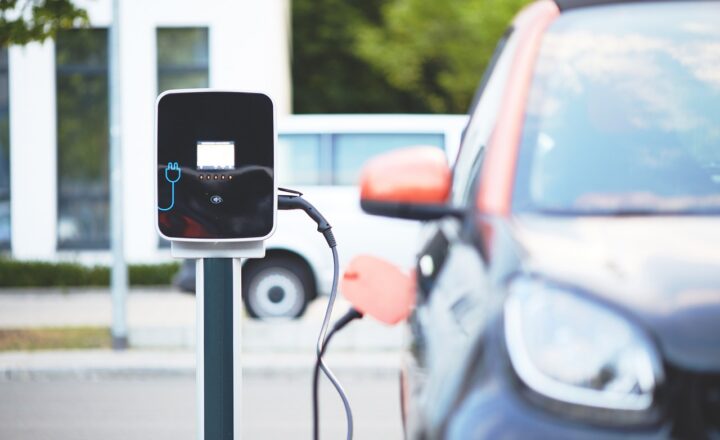EV Incentives: Your Complete Guide to Electric Vehicle Tax Credits, Rebates, and Benefits
October 18, 2024

As the global shift toward sustainable transportation accelerates, electric vehicles (EVs) are becoming increasingly popular. While environmental benefits often drive EV adoption, incentives play a crucial role in making EVs accessible and affordable. Understanding the variety of EV incentives available can help consumers and businesses alike maximize their savings.
Types of EV Incentives
EV incentives come in various forms, each offering unique benefits:
Federal Tax Credits
Federal tax credits are a significant incentive in countries like the U.S., Canada, and Germany. In the U.S., buyers of new EVs can receive a federal tax credit of up to $7,500, depending on the vehicle’s battery size and the manufacturer’s sales volume. To qualify, the buyer must have tax liability equal to or greater than the credit amount.
State and Local Rebates
Many states and local governments offer rebates that complement federal incentives. For example, California provides up to $4,500 in rebates for low-income households purchasing new EVs. Such programs are highly variable, so checking local incentives is essential.
Grants and Subsidies
Grants and subsidies for EVs are often available to support lower-income buyers or specific demographics. These programs help make EVs accessible to a broader audience, ensuring that sustainable transportation options are within reach for all.
Utility Incentives
Utility companies increasingly offer rebates for EV purchases and home charging stations. These programs often provide rebates on installation costs and lower electricity rates for EV charging.
Incentives for EV Charging Infrastructure
Charging infrastructure incentives are vital for EV owners:
Home Charging Station Incentives
Many governments and utilities offer rebates for home EV chargers. For example, Quebec provides up to $600 in rebates for installing a Level 2 home charger.
Public Charging Incentives
Some regions offer incentives for expanding public charging networks. Programs often provide funding to cover installation costs for public chargers, which can be beneficial for businesses looking to attract EV-driving customers.
Workplace Charging Incentives
Businesses installing workplace chargers can benefit from tax credits and rebates. These programs encourage employers to support employees who drive EVs, making sustainable commuting easier.
Incentives for Businesses
Businesses can also take advantage of EV incentives:
Fleet Incentives
Companies transitioning to EV fleets can benefit from government grants and tax credits. These incentives reduce the upfront cost of EVs, making it feasible for businesses to go green.
Commercial Charging Station Incentives
In many regions, businesses installing EV chargers receive rebates that can cover a portion of the installation cost, helping them become more attractive to EV drivers.
Tax Deductions and Depreciation Benefits
Businesses can also benefit from tax deductions and accelerated depreciation on EV purchases, which lowers their taxable income and supports sustainable business practices.
Other Benefits of EV Ownership
In addition to monetary incentives, EV owners often receive other benefits:
Reduced Registration Fees
Some states and countries offer reduced registration fees for EVs. This makes EV ownership more affordable over time.
Toll Discounts
EVs are sometimes eligible for toll discounts or exemptions. This can lead to significant savings, especially for daily commuters.
Access to High Occupancy Vehicle (HOV) Lanes
In several regions, EVs have access to HOV lanes, which helps save time and reduces congestion.
Parking Incentives
Certain cities offer free or discounted parking for EVs, making it easier to find parking in crowded urban areas.
How to Maximize Your EV Incentives
To get the most out of EV incentives, consider these tips:
Steps to Claim EV Incentives
Research and apply for federal, state, and local incentives. Ensure you have the necessary documentation, and submit your applications on time.
Researching Incentives for Your Location
Use online resources to find incentives specific to your area. Many websites provide up-to-date information on available EV incentives.
Timing Your Purchase
Consider buying an EV during tax season to leverage tax credits, or wait for local rebate programs that align with government funding cycles.
Considerations for Business Owners
If you’re a business owner, evaluate the benefits of fleet incentives and commercial charging station rebates to maximize savings.
Future Trends in EV Incentives
As EV adoption grows, governments may adjust incentive programs. Stay informed about potential policy changes that could affect future EV purchases.
Conclusion
Exploring available EV incentives can lead to substantial savings, making EV ownership a practical choice for many. Whether you’re a consumer or a business, taking advantage of these benefits supports the global shift toward greener transportation.






